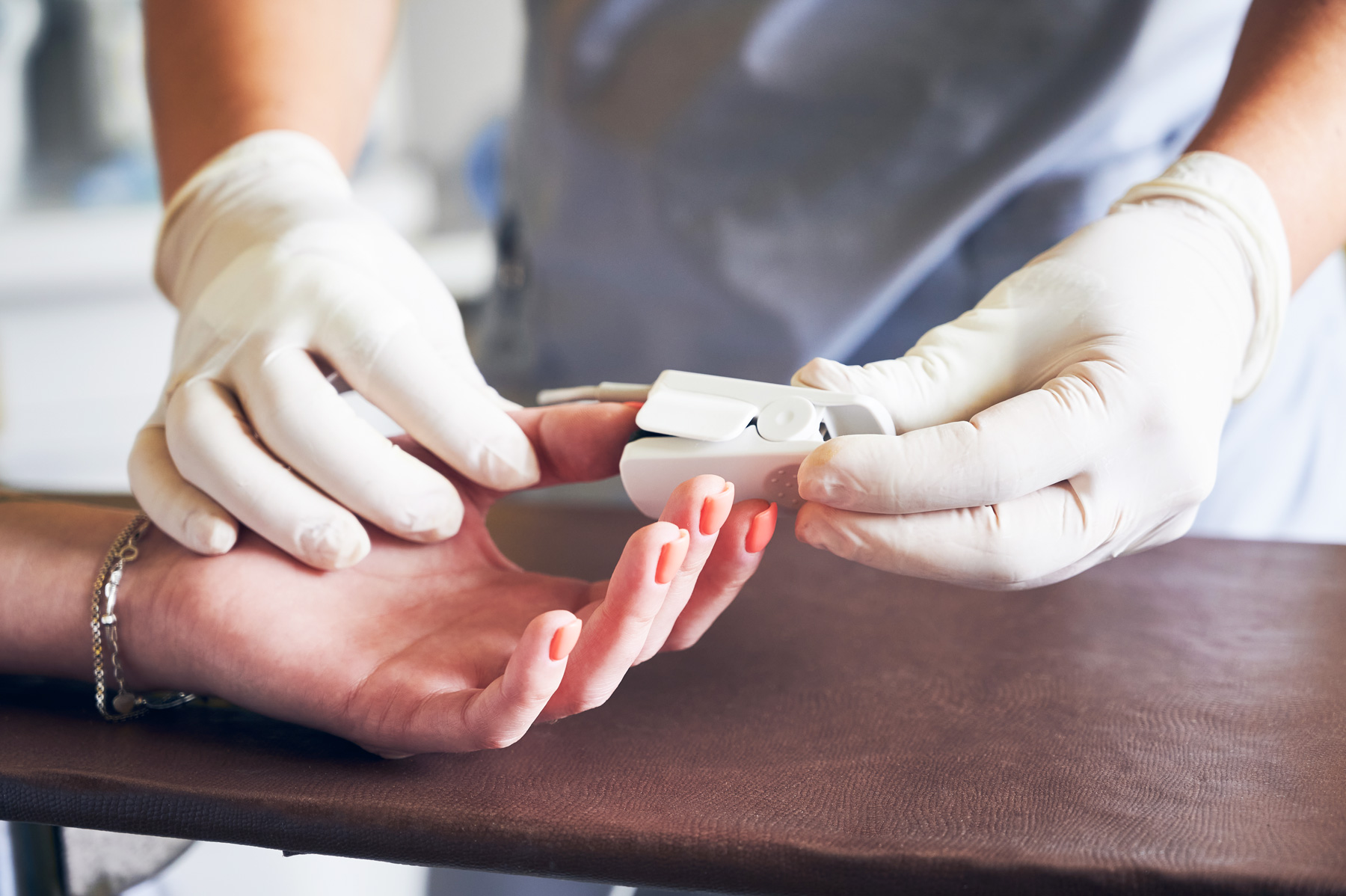

Diabetes is a common lifelong condition that causes a person’s blood sugar levels to become too high. More than 3 million people in the UK have been diagnosed with diabetes, and many others have blood sugar levels above the normal range, but not high enough to be diagnosed with diabetes (this is commonly referred to as pre-diabetes).
Diabetes can be categorised as Type 1 and Type 2.
Type 1 is commonly referred to as juvenile diabetes, or early-onset diabetes, as it generally develops before the age of 40, usually during adolescence. If you are diagnosed with type 1 diabetes, you will need insulin injections for the rest of your life.
Type 2 diabetes is vastly more common that type 1; in the United Kingdom approximately 90% of all adults with diabetes have type 2. Type 2 is often associated with obesity and is referred to as maturity onset diabetes as it is more common in older people. Sufferers of type 2 diabetes may be able to control their symptoms by eating a healthy diet, exercising and monitoring blood glucose levels. However, type 2 is a progressive condition and may eventually require medication, usually in the form of tablets.
The main symptoms of diabetes include feeling extremely thirsty, excessive tiredness, weight loss and loss of muscle bulk, blurred vision, urinating more often than usual, especially at night, cuts or wounds that heal slowly and itching around the penis or vagina – or frequent episodes of thrush. This is caused by a lack of insulin, and therefore energy, in the body. Our bodies need glucose to provide the energy we need for daily life. A hormone called insulin moves the glucose we need, which we get from food, out of the bloodstream and into cells, where it is broken down into energy. However, a diabetic’s body is unable to break down glucose into energy. This is because the pancreas does not produce insulin (type 1 diabetes), or either does not produce enough insulin or the insulin does not work properly (type 2 diabetes).
Left untreated, diabetes can lead to heart disease, stroke, dental problems, nerve damage and blindness. This makes it extremely important to obtain a diagnosis as early as possible in order to implement the right care and support in order to manage these risks and reduce the impact of everyday symptoms.
Advance knows very well that caring for a loved one with diabetes can be very overwhelming. That is why we train our team members to minimise the disruption of a diabetes diagnosis by providing the support needed to help everyone cope. Together, we create a support plan that is tailored to your specific needs and preferences, allowing you to stay in control of your routine and successfully navigate these lifestyle changes.
Specifically trained to provide diabetes support, our team members offer assistance ranging from help around the home to personal care. From meal preparation and encouraging an active lifestyle, to helping with more personal issues like monitoring weight loss and managing the day to day symptoms – Advance are there to carry out all the practical care aspects giving clients the opportunity to lead asnormal a life as possible.
Our support assistants are also there to offer emotional support and companionship. They understand that while helping their clients with the medical aspects of diabetes support, or (aiding in) assisting with practical duties such shopping and cooking is important, so is reminiscing and chatting about shared interests. This is why we ensure you are matched with a carer who not only has the relevant skillset but also has a complementary personality.
Our diabetes care includes:
Deciding to let a support assistant into your home for you or a loved one can be difficult. Deciding how best to support and treat the resulting issues of diabetes is something that, understandably, worries people considering home care for a diabetic patient. Our experienced friendly team members are here to explain all aspects of the diabetes care and support services we offer, and provide quality, impartial advice and information.
Explore our care services.























